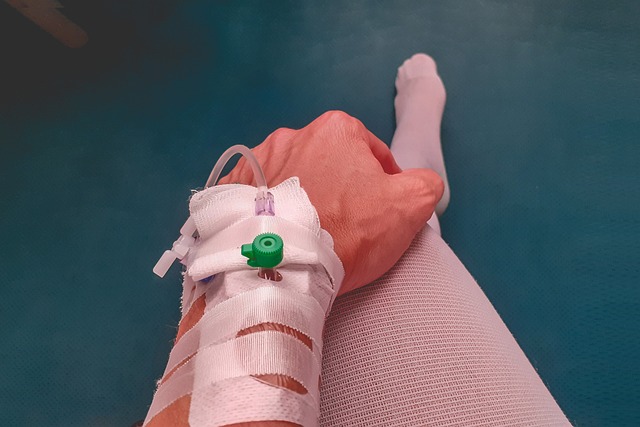Post-surgery recovery involves a multifaceted approach that prioritizes tailored medical guidance, medication management, and personalized treatment protocols to facilitate healing. Effective pain control through carefully planned analgesics is foundational, with healthcare professionals closely monitoring patients for optimal pain and swelling management. The type of surgery significantly influences the recovery timeline, with less invasive procedures generally allowing for quicker recuperation. Early recovery emphasizes rest and adherence to activity restrictions, followed by a gradual reintroduction of light activities as tolerated to promote circulation and support healing without risking the surgical site. Physical therapy and targeted rehabilitation exercises are introduced to restore mobility and muscle strength, ensuring a smooth transition back to regular life. Nutritional support is vital for tissue repair and immune system effectiveness, with a balanced diet and supplements like omega-3 fatty acids, vitamins C and E, zinc, vitamin D, probiotics, and water being essential components of the recovery process. Mental health is also a critical aspect of recovery, with coping strategies, therapy sessions, and relaxation techniques recommended to manage emotional challenges. A holistic treatment approach, combining medical interventions with psychological support, ensures comprehensive healing, underlining the importance of addressing both physical and psychological needs during recovery from surgery. Regular follow-up visits with healthcare providers are essential for evaluating progress and adjusting treatments to maintain a patient's well-being throughout their recovery journey.
Navigating post-surgery recovery can be a multifaceted journey, encompassing physical, nutritional, and psychological aspects. This article provides expert guidance to ensure a smooth transition from surgery to recuperation. We’ll explore critical strategies for medication management, delve into optimal nutritional approaches, and outline essential physical therapy exercises. Additionally, we’ll address the importance of psychological support during this vulnerable period. With the right treatment and care, post-surgery recovery can be a path to renewed health and well-being.
- Understanding Post-Surgery Recovery: An Overview of Key Considerations
- Medication Management After Surgery: A Guide to Pain Relief and Preventative Measures
- Nutritional Strategies for Optimal Healing: Foods and Supplements to Favor Post-Operation
- Physical Therapy and Rehabilitation: Essential Exercises for Regaining Mobility and Strength
- Psychological Support and Coping Mechanisms During Recovery from Surgery
Understanding Post-Surgery Recovery: An Overview of Key Considerations

Post-surgery recovery is a multifaceted process that requires careful adherence to medical advice and individualized treatment plans. Patients should expect regular monitoring of their condition by healthcare professionals, who will closely manage pain through appropriate analgesics and medications tailored to the patient’s specific needs. The type of surgery performed significantly influences recovery time; for instance, minimally invasive procedures often allow for quicker recuperation compared to more extensive surgeries.
In the initial phase of recovery, rest is crucial, and patients are advised to follow the prescribed activity restrictions to facilitate healing. Engaging in light activities as tolerated by the patient’s comfort level can promote circulation and aid in recovery without overexerting the surgical site. Physical therapy and rehabilitation exercises may be introduced gradually to restore range of motion and strength, ensuring a safe and effective return to normal activities. Medication management plays a key role in managing postoperative pain and inflammation, with the aim of optimizing patient comfort and facilitating the healing process. Regular follow-up appointments are essential for assessing progress and making necessary adjustments to the treatment regimen, ensuring the best possible outcomes for the patient’s recovery.
Medication Management After Surgery: A Guide to Pain Relief and Preventative Measures

Navigating post-surgery recovery involves a precise regimen of medication management to ensure effective pain relief and preventative measures against complications. Patients should adhere strictly to their physician’s instructions regarding medication timing and dosages. Analgesics, anti-inflammatory drugs, and antibiotics, if prescribed, play a critical role in managing postoperative pain and reducing the risk of infection. It is imperative to take these medications as directed, ideally at consistent intervals to maintain optimal levels in your system and control discomfort without exceeding or undercutting the required dosages. Additionally, monitoring for side effects and maintaining open communication with healthcare providers are essential aspects of safe medication management during recovery. Regular follow-up appointments allow for the adjustment of treatment as needed, ensuring a smoother and more effective healing process.
Nutritional Strategies for Optimal Healing: Foods and Supplements to Favor Post-Operation

Following surgical intervention, the body requires a combination of proper nutrition and adequate rest to facilitate healing. A well-balanced diet rich in essential nutrients is pivotal for post-operative recovery. Proteins are vital components for repairing tissues; lean meats, legumes, and dairy products should be incorporated into meals to ensure an ample supply of the building blocks necessary for wound healing. Additionally, fruits and vegetables high in vitamins C and E, along with zinc, aid in collagen production and help maintain immune system efficiency, which is crucial during the recovery process. Hydration is equally important; drinking plenty of water supports kidney function and aids in flushing out toxins, promoting overall well-being and facilitating treatment efficacy.
In conjunction with a nutrient-dense diet, certain supplements may complement the healing process. Omega-3 fatty acids, found in fish oil, have anti-inflammatory properties that can help manage postoperative swelling and pain. Vitamin D supplementation is often recommended to support bone health and immunity, particularly if dietary intake is insufficient. Probiotics are also beneficial for gut health, which plays a significant role in immune function and nutrient absorption. These supplements should be taken under the guidance of a healthcare provider to ensure they align with any existing treatments and do not interfere with medicine prescribed for recovery. A multidisciplinary approach that includes medical care, proper nutrition, and targeted supplementation can significantly enhance the body’s natural healing capabilities post-surgery.
Physical Therapy and Rehabilitation: Essential Exercises for Regaining Mobility and Strength

Engaging in physical therapy and rehabilitation exercises post-surgery is pivotal for restoring mobility and strength. These tailored treatment protocols are designed to address the specific needs of an individual’s recovery process, encouraging gradual restoration of muscle function and joint range of motion. Physical therapists utilize a variety of techniques, including resistive exercises, flexibility training, and gait retraining, which are instrumental in rebuilding the body’s capabilities following surgical intervention.
Furthermore, the integration of specific medical-grade equipment during physical therapy sessions can significantly enhance the efficacy of rehabilitation. For instance, under the guidance of a trained professional, patients may use tools like parallel bars for support while regaining leg strength or stationary bicycles to improve cardiovascular health without overexerting the healing area. These controlled exercises allow for monitored progression, ensuring that patients challenge their bodies safely and effectively as they progress through their recovery journey.
Psychological Support and Coping Mechanisms During Recovery from Surgery

Navigating the psychological aspects of post-surgery recovery is as crucial as the physical healing process. Patients often experience a range of emotions, from anxiety about their health to frustration with the limitations imposed by their condition. To support mental well-being, healthcare providers recommend leveraging various coping mechanisms. Engaging in therapy sessions, either individually or within a supportive group, can provide patients with strategies to manage stress and fear associated with the surgery and its outcomes. Additionally, incorporating relaxation techniques such as deep breathing exercises, meditation, or progressive muscle relaxation into daily routines can aid in alleviating tension and promoting a sense of calm.
The role of medicine is not limited to physical treatment; it extends to addressing emotional health. Psychotropic medications may be prescribed to help manage depression, anxiety, or other mood disorders that can arise post-surgery. It’s important for patients to maintain open communication with their healthcare team to monitor their mental state and adjust treatments as necessary. This holistic approach ensures that both the physical and psychological aspects of recovery are addressed, leading to a more comprehensive healing experience. Regular follow-up appointments allow medical professionals to track progress and provide ongoing support tailored to each patient’s unique needs during their recovery journey.
Effective post-surgery recovery is a multifaceted process that encompasses medical, nutritional, and psychological aspects to ensure optimal healing and well-being. This article has outlined the importance of expert guidance in medication management for pain relief and preventative care, the strategic role of nutrition in supporting the body’s natural healing processes, the critical nature of physical therapy for regaining mobility and strength, and the significance of psychological support to navigate the emotional landscape of recovery. As patients embark on this journey, it is imperative to engage with healthcare professionals who can tailor a treatment plan specific to their needs, thereby facilitating a smoother transition back to health. With careful adherence to these recommendations, individuals can look forward to a more expedient and comprehensive post-surgery recovery experience.
